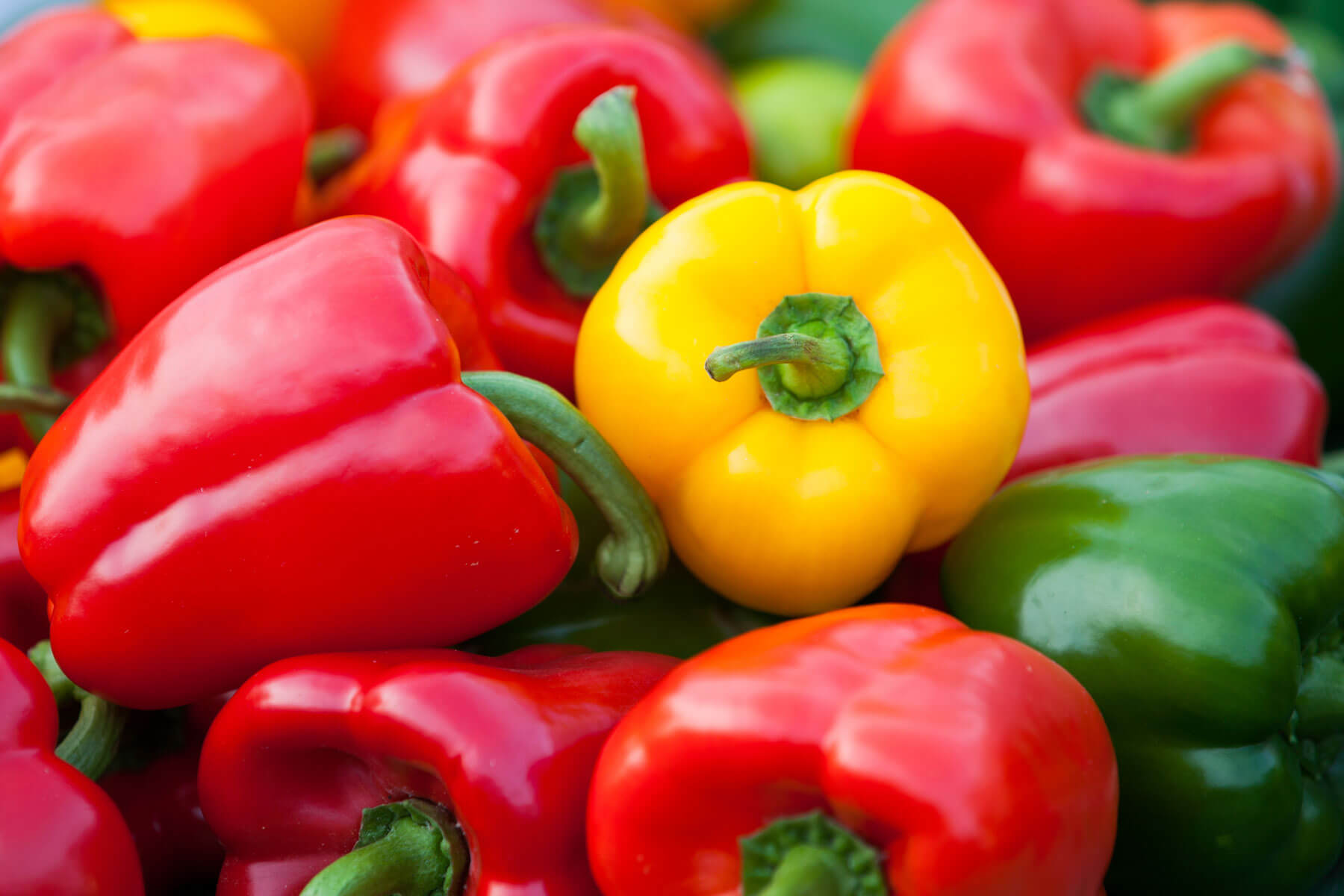Best Fertilizers for Peppers: A Comprehensive Guide to Increase Your Harvest
Best Fertilizers for Peppers: A Comprehensive Guide to Increase Your Harvest
Blog Article
Organic Vs. Synthetic Fertilizers: Which Is Best for Nurturing Healthy Pepper Plants?
In the realm of nurturing healthy and balanced pepper plants, the selection in between synthetic and organic fertilizers stands as a critical decision with significant effects. While both alternatives purpose to provide important nutrients to sustain plant development, the subtleties of their effect on the soil, plant health, and the environment spark an argument that echoes throughout the gardening area. Recognizing the distinct benefits and possible risks of each fertilizer kind is essential for pepper growers looking for to enhance their returns while preserving a lasting and eco-conscious approach.
Benefits of Organic Fertilizers
Organic fertilizers offer an environmentally-friendly and lasting technique to beneficial pepper plants, supplying vital nutrients without making use of artificial chemicals. These natural plant foods are obtained from organic resources such as garden compost, manure, bone meal, and seaweed, advertising dirt health and wellness and biodiversity. Unlike synthetic fertilizers, organic alternatives launch nutrients gradually, ensuring a stable and balanced supply for pepper plants to thrive.
One substantial advantage of natural fertilizers is their capacity to boost dirt structure and water retention. By enhancing dirt health, natural fertilizers advertise valuable microbial task, which aids in nutrient uptake by pepper plants. In addition, organic fertilizers minimize the threat of chemical run-off, safeguarding water resources from contamination and protecting the setting.
Furthermore, organic plant foods add to lasting soil fertility by advertising the development of helpful soil microorganisms. These organisms assist damage down raw material, launching nutrients in a form that is quickly accessible to pepper plants. best fertilizers for peppers. By promoting a healthy and balanced dirt community, natural fertilizers support sustainable pepper farming practices that profit both plants and the environment
Disadvantages of Artificial Plant Foods
Synthetic plant foods, in comparison to their natural equivalents, position various disadvantages when used to nurture pepper plants, influencing both plant wellness and ecological sustainability. One significant disadvantage of synthetic fertilizers is their propensity to seep nutrients from the soil rapidly.
In addition, the overuse of artificial fertilizers can add to water pollution. Excess fertilizers not taken in by plants can clean away right into water bodies, bring about eutrophication, where algae blossoms diminish oxygen degrees in the water, damaging aquatic life. Additionally, synthetic plant foods are normally originated from non-renewable resources, such as nonrenewable fuel sources, adding to carbon exhausts and ecological destruction during their production.
Nutrient Absorption Comparison
Efficient nutrient absorption plays a vital function in the general health and growth of pepper plants. When contrasting artificial and organic plant foods in terms of nutrient absorption, organic fertilizers have the benefit of giving a more well balanced and slow-release source of nutrients (best fertilizers for peppers). Organic plant foods have a range of macro and micronutrients that are not only valuable for the plants however likewise advertise healthy dirt microbial activity, which assists in nutrient uptake. On the other hand, artificial fertilizers commonly offer a fast release of nutrients, which can bring about seeping and runoff, resulting in reduced nutrient absorption rates by the plants.
Additionally, natural fertilizers boost soil framework and water retention capability, allowing pepper plants to accessibility nutrients much more efficiently. This better soil quality promotes origin growth, allowing much better nutrient absorption. visit homepage Synthetic plant foods, although at first boosting plant growth as a result of their high nutrient concentrations, may hinder long-term nutrient absorption by derogatory soil health and wellness with time.
Ecological Impact Considerations

On the various other hand, synthetic fertilizers, although frequently even more promptly available and concentrated to plants, can have destructive results on the atmosphere otherwise used correctly (best fertilizers for peppers). Their manufacturing requires high energy inputs, resulting in greenhouse gas discharges and contributing to environment modification. In addition, the drainage of excess look what i found artificial fertilizers can infect water resources, causing eutrophication and hurting aquatic communities.
Best Fertilizer Practices for Peppers
To accomplish this, it is essential to follow ideal fertilizer practices customized to the certain requirements of pepper plants. One crucial method is to carry out a dirt test prior to using any plant foods.
One more crucial practice is to feed pepper plants at the correct time. Generally, peppers take advantage of getting plant food at growing and then once again when they start to flower. Over-fertilizing can cause nutrition inequalities and hurt the plants, so it is important to comply with advised application prices.
Additionally, picking a well balanced plant food with an NPK proportion that suits pepper plants' needs is essential. Organic plant foods, such as garden compost or manure, can be outstanding selections as they launch nutrients slowly and improve soil structure gradually. Nonetheless, artificial plant foods can give a fast nutrient increase when required. Inevitably, incorporating organic and artificial fertilizers judiciously can assist support healthy pepper plants while decreasing environmental influence.
Verdict

Organic fertilizers provide a lasting and environmentally-friendly technique to beneficial pepper plants, offering essential nutrients without the usage of artificial chemicals. Unlike synthetic plant foods, organic options release nutrients gradually, ensuring a stable and well balanced supply for pepper plants to thrive.
Synthetic fertilizers, in contrast to their organic equivalents, present numerous downsides when made use of to nourish pepper plants, affecting both plant wellness and environmental sustainability. When comparing synthetic and organic fertilizers in terms of nutrient absorption, natural plant foods have the advantage of giving a much more well balanced and slow-release resource of nutrients.Furthermore, organic fertilizers improve dirt framework and water retention capacity, permitting pepper plants to access nutrients more effectively.
Report this page